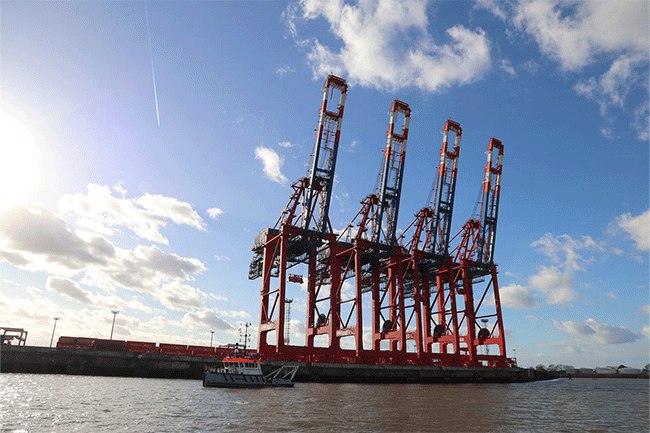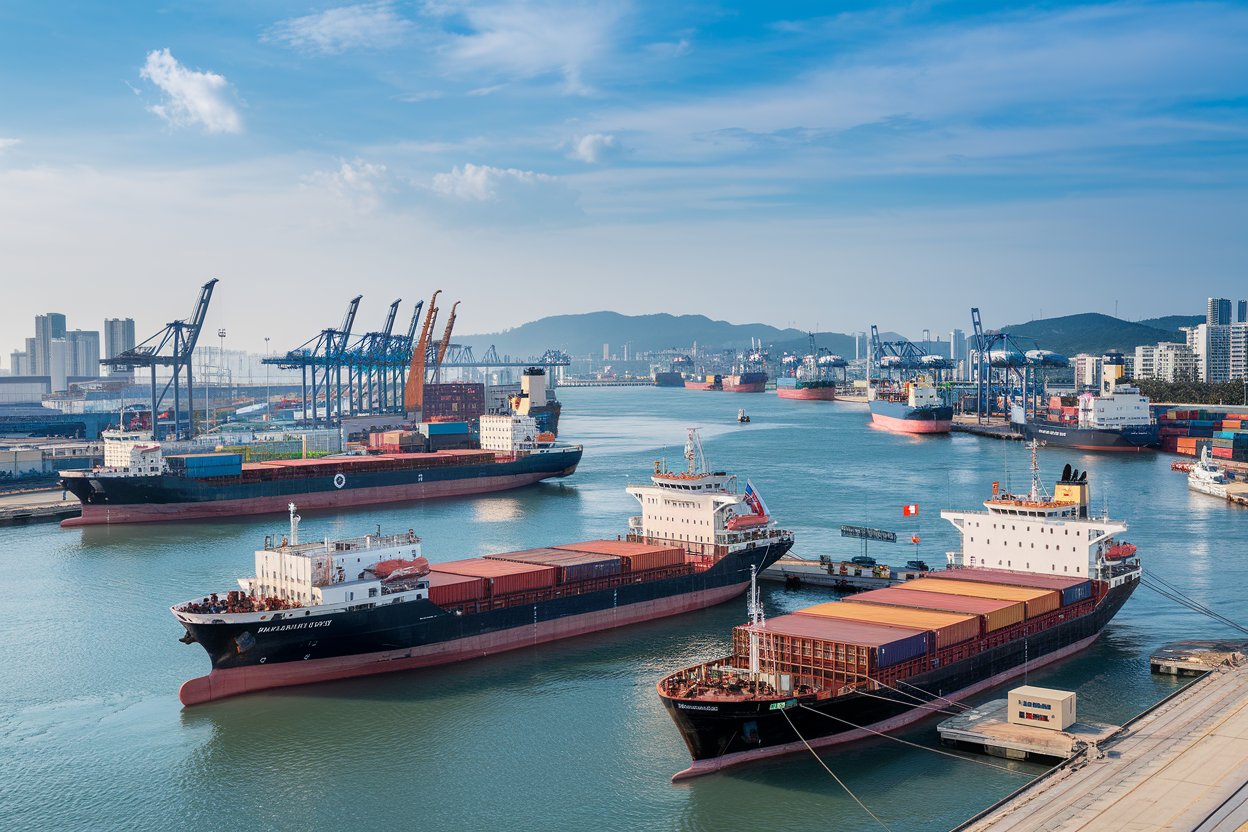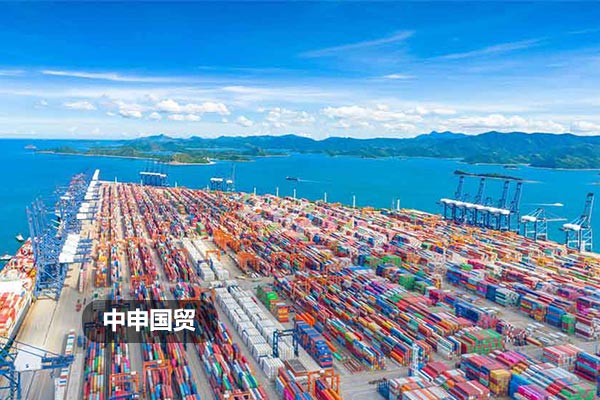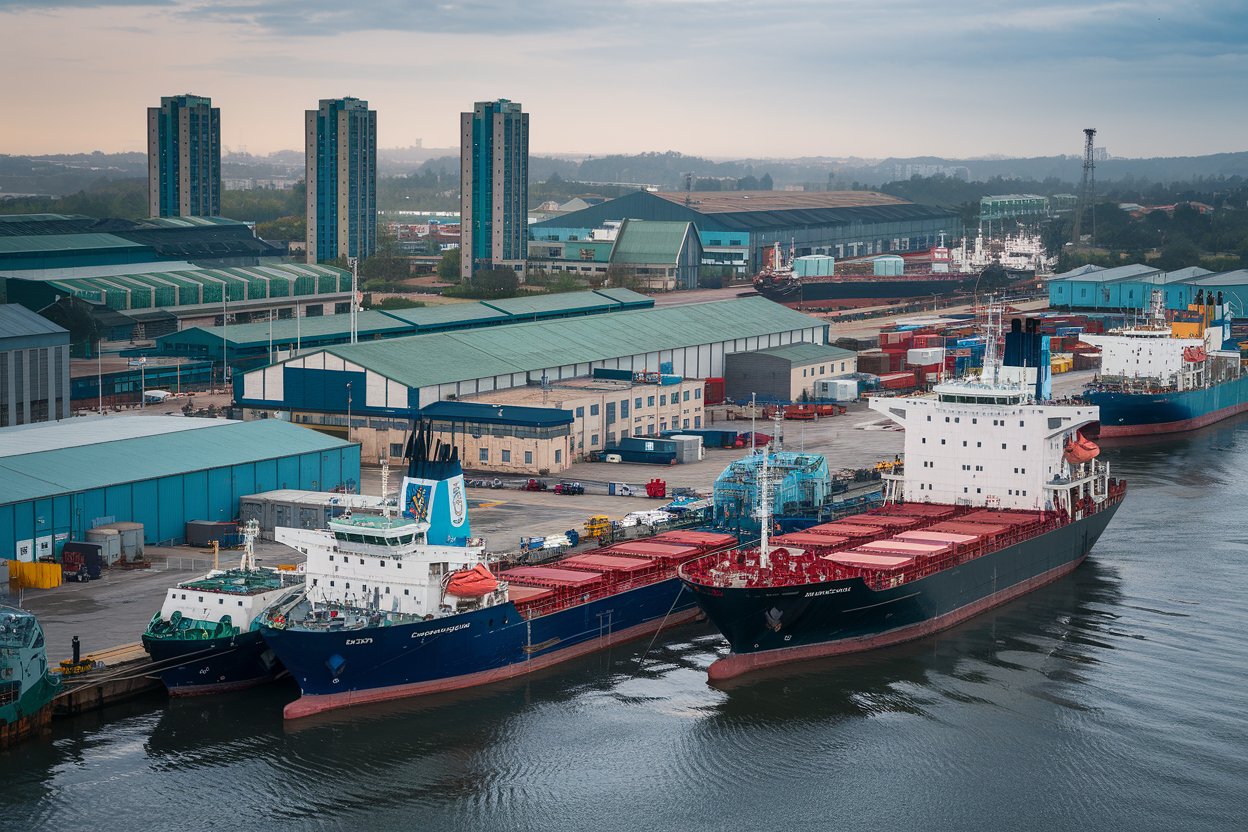- 20 Years of Expertise in Import & Export Solutions
Amid the wave of industrial automation, high-end solenoid valves, serving as the "nerve endings" of fluid control systems, continue to experience robust market demand. For many visionary entrepreneurs, this undoubtedly represents a blue ocean brimming with opportunities. However, behind these opportunities lie complexities and high barriers that far surpass those of ordinary consumer goods imports.
Have you ever faced such dilemmas: holding high-quality overseas supplier resources but being deterred by the cumbersome import procedures? Or, as a brand owner, you aspire to devote all your energy to market expansion, yet find yourself entangled in customs, documentation, logistics, and other tasks?
If you have any of the above concerns, then this article is tailor-made for you. Today, we will thoroughly demystify imported solenoid valves for you and show you how to turn these "challenges" into your "competitive advantages" through professional agency services.

1. Imported Solenoid Valves: The "Three Major Thresholds" You Might Not Know About
Unlike imported consumer goods such as clothing and food, solenoid valves, as industrial precision components, have an extremely high professional barrier in their import process. Unfamiliarity with the rules and "crossing the river by feeling the stones" often comes at a heavy cost.
- Technical Barriers and the Compliance Maze: Certificates, Standards, and Classifications Are All Indispensable
- HS Code Classification:?This is the first hurdle, and also the most critical step. The HS code for a solenoid valve can vary significantly depending on factors such as its material, structure, driving method, and purpose (e.g., whether it is used in specific hazardous environments). Incorrect classification may lead to miscalculated tax rates requiring tax supplements at best, or at worst, be deemed as false declaration or smuggling, resulting in fines or even criminal liability.
- Compulsory Certification (CCC Certification):?Not all solenoid valves are required, but once your product falls under the national compulsory product certification catalog, it is mandatory to obtain a CCC certificate before import and affix the corresponding mark on the product. Otherwise, the goods will be directly returned or destroyed.
- Special document requirements:?For certain specialized applications or high-pressure solenoid valves, they may be classified as special equipment, requiring additional documents such as the "Special Equipment Manufacturing License." These professional judgments are difficult for non-experts to accurately grasp.
- The Complexity of Documentation and the Challenge of "Consistency": Details Determine Success or Failure
?Import Customs Declaration?A complete set of meticulously aligned documents is required, including but not limited to: commercial invoices, packing lists,?Ocean shipping?/?Air freight?Bill of Lading, Purchase Contract,?Certificate of Origin?Books, etc. The core requirement here is "Document conformity, goods conformity". That is to say, the product name, specifications, quantity, amount, consignor and consignee information, etc., on all documents must completely match and be fully consistent with the actual goods. Any minor oversight, such as a spelling error or a numerical discrepancy, may trigger an alert in the customs system, leading to inspections, delays, or even rejection and re-submission of the declaration. - The Length of the Process and the Risk of "Uncertainty": A Dual Test of Time and Money
The entire chain involves shipping from overseas to domestic warehousing.Global Logistics, port operations, customs declaration, inspection and quarantine, tax payment, and other multiple links. Any problem in any of these links can trigger a chain reaction. For example, transportation delays, port congestion, random customs inspections, temporary policy adjustments, and other uncertain factors will not only prolong your receiving cycle and affect sales plans but also generate additional demurrage fees, storage fees, and other costs, continuously eroding your profits.
2. What Can a Professional Agent Do for You? — We Are Your "One-Stop Import Butler"
Faced with the above numerous challenges, professional?Import Agency?The company is your most reliable solution. What we provide is not just a single customs clearance service, but a comprehensive "butler-style" service that runs through the entire process.
- Pre-access consultation:?We intervene before you place an order. We help confirm whether the target product is allowed for import, identify the required qualifications and certificates, estimate tariffs and VAT, and mitigate risks from the very beginning.
- Label and Data Compliance Guidelines:?Assist you in reviewing or designing product nameplates (labels) that comply with Chinese national standards, ensuring all information is compliant to avoid rectifications at customs due to labeling issues.
- Complete set of document review and preparation:?Before the shipment of goods, we will conduct a cross pre-review of all documents provided by you and the supplier, identifying and correcting any issues in advance to ensure "document consistency."
- Optimal logistics solution planning:?Based on your cargo volume, delivery time requirements, and budget, we will match you with the most suitable international shipping (sea/air freight) and insurance solutions.
- Efficient Customs Declaration and Inspection:?With extensive experience and professional knowledge, we ensure precise HS code classification, enabling swift and accurate completion of customs declaration and commodity inspection procedures.
- Tax Payment and Fee Settlement:?Acting on your behalf to pay customs duties and value-added taxes to the customs, and providing a clear breakdown of costs, ensuring every expense is transparent.
- Warehousing and Domestic Distribution:?After the goods are released, we can arrange for pickup, warehousing, and delivery to any location nationwide as per your requirements.
III. Our Standard Operating Procedures (SOP): Bringing Order to Complex Imports
Through standardized processes, we minimize uncontrollable risks, ensuring you have full transparency and control over the entire import procedure.
- Step 1: Initial Contact and Customized Solution Development
You propose the requirements, and we engage in one-on-one in-depth communication to complete the access evaluation and risk analysis, tailoring a customized import solution and quotation exclusively for you. - Step 2: Sign the Contract and Prepare Overseas Stock
Sign an agency agreement to clarify the rights and responsibilities of both parties. We will begin coordinating with your overseas suppliers, guiding them in preparing compliant export documents, and tracking the progress of stock preparation. - Step 3: International Shipping and Document Pre-Review
Arrange booking and international transportation. Simultaneously with the departure of the goods, we obtain the full set of electronic documents for pre-review, achieving "documents arrive before the cargo." - Step 4: Port Arrival Declaration and Customs Inspection
Upon the arrival of goods at the domestic port/airport, we promptly proceed with the bill of lading exchange and formally declare them to the customs system. In case of inspection, we provide full accompaniment and engage in professional communication with customs officers. - Step 5: Tax Calculation and Payment Clearance
Upon issuance of the customs duty notice, we will promptly notify you for verification and arrange the payment. Once the tax payment is completed, customs will issue the release order. - Step 6: Pick-up and Warehousing, Followed by Domestic Distribution
Present the release note to complete the cargo pickup procedures, and arrange for vehicles to safely transport the goods to your warehouse or proceed directly with distribution. - Step 7: Document Archiving and After-Sales Support
We will organize and archive the complete set of customs clearance documents, tax receipts, and other materials before delivering them to you, while also providing ongoing support for any potential issues that may arise.
IV. Imported Solenoid Valves: Where Does the Money Go? — Analysis of Major Cost Components
Transparent costs are the foundation of cooperation. Below are the main cost components involved in importing solenoid valves, so you can have a clear understanding:
- Goods value and taxes (major portion):
- Product value:?The payment you made to the overseas supplier.
- Tariff:?(Value of goods + Freight + Insurance) × Tariff rate (generally ranging from 0% to 10%, subject to HS code and country of origin).
- VAT:?(Goods value + Freight + Insurance + Tariff) × 13% (current tax rate).
- Tax-saving tips:?If your supplier can provide preferential certificates of origin from specific countries (such as ASEAN nations, South Korea, Switzerland, and others with free trade agreements with China), the tariff rate may drop to 0! This is a key tax-saving point we can help you verify.
- Logistics and Port Miscellaneous Fees:
- International Shipping Cost:?Transportation costs from overseas factories to domestic ports.
- Port/Airport Miscellaneous Charges:?Including the bill of lading fee, terminal handling charges, document fees, etc., usually at...?Several hundred to several thousand yuan?It depends on the specific situation.
- Customs declaration and service fees:
- Customs declaration and inspection fees:?As an agent, the service fee we charge for handling customs declaration and inspection procedures for you is generally calculated per shipment or per container, with a market reference price of approximately?500 - 2000 yuan/shipment.
- Label/Nameplate Filing Fee (if required):?If special filing is involved, additional costs will be incurred.
- Testing fee (if required):?If customs requires sample testing, fees from a third-party testing agency will be incurred.
- Agency service fee:?That is, the core cost of our one-stop service is typically quoted based on a comprehensive assessment of your imported goods' value, complexity, and the specific scope of services required.
- Warehousing and distribution fee:
- Calculated based on actual storage duration and delivery distance, flexible and optional.
V. Who is the most suitable to choose us?
If you fall into any of the following categories, then opting for professional import agency services will be your most cost-effective investment:
- Entrepreneurs venturing into import business for the first time:?We are your "guide" and "knowledge base," helping you avoid all the "newbie pitfalls" and ensuring you start professionally and compliantly from your very first order.
- Merchants with overseas resources but lacking process experience:?You focus on streamlining the upstream supply chain, while we handle all downstream import processes. Together, we achieve greater efficiency through a powerful partnership.
- Import brand owners who wish to focus on marketing and sales:?Outsource the tedious logistics tasks to us, freeing up your team so you can focus 100% on building your brand and expanding channels—the core value-creating work.
Choosing a reliable agent is the first step to success.
In summary, a reliable import agent offers you far more than just time savings. It transforms unpredictable policy risks into foreseeable compliance pathways, converts cumbersome procedures into clear milestone reports, and turns potential financial losses into tangible cost savings. This is a strategic investment that brings you peace of mind, convenience, and reassurance.
Rather than exploring and experimenting alone in an unknown field, it's better to walk alongside professionals from the very beginning.
Act now and embark on your worry-free import journey!
We offerFirst-time free import solution consultation, Whether you ultimately choose us or not, we hope to utilize our professional expertise to address your questions and concerns.
Recommended for You
- A Guide to Avoiding Pitfalls in Red Wine Import Agency: How to Save a Lot by Choosing Wisely!
- How Are Import-Export Agency Fees Charged? 2025 Latest Fee Analysis
- How to Operate Import and Export Agency? 2025 Latest Full Analysis of Agency Services
- What specific problems can import and export agents help businesses solve? How to choose a reliable agency company?
- What does an import and export agency company do? How can foreign trade enterprises choose a reliable agent in 2025?
Core business
Contact Us
Email: service@sh-zhongshen.com
Recommended for You
Contact via WeChat

? 2025. All Rights Reserved.









